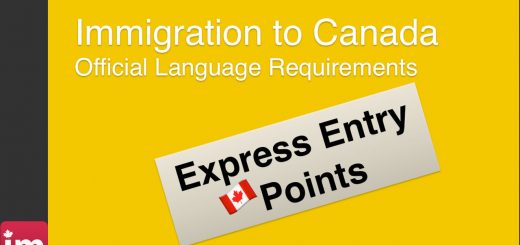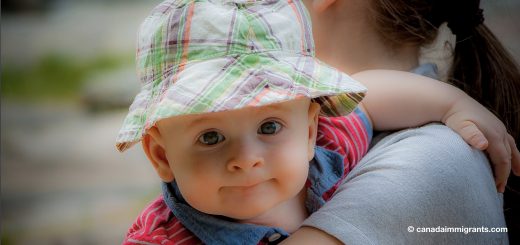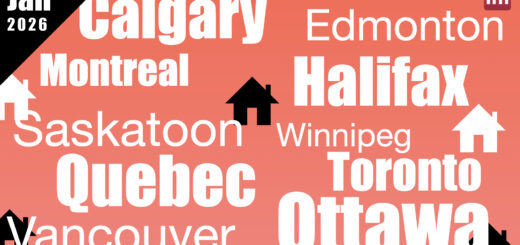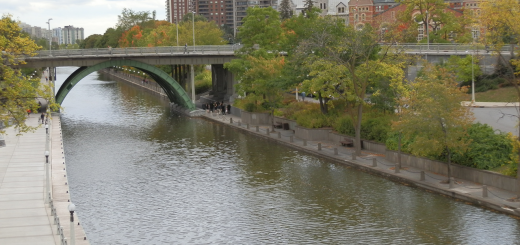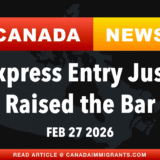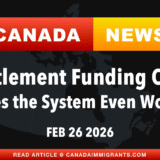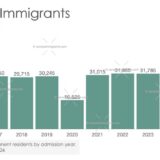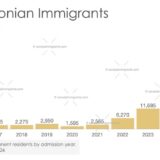Canada Immigration Targets 2017
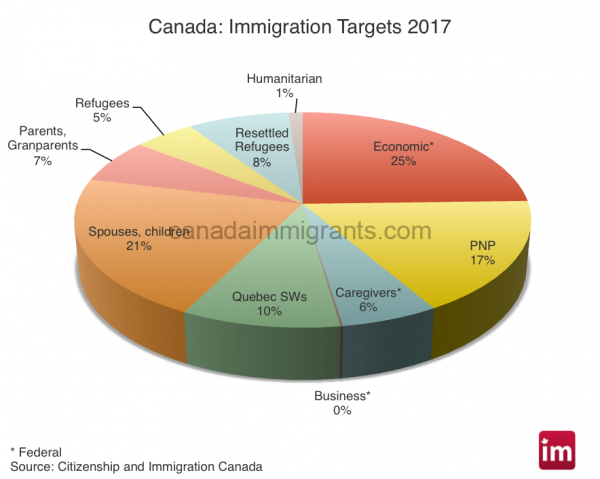
In 2017, Canada’s immigration plan remains strong and aims to welcome 300,000 immigrants – “a new baseline for permanent residents admissions.”
The Canadian government asserts, once again, that “Immigration plays an important role in keeping Canada competitive in a global economy,” so the economic class will continue to account for the majority (57.5%) of all admissions in 2017; the family class will account for 28% and 14.5% will be admitted under the humanitarian and refugee categories.
| Canada Immigration Targets 2017 | |
| Immigration Category | Target |
| Economic | |
| Federal Economic | 73,700 |
| Federal Caregivers | 18,000 |
| Federal Business | 500 |
| Provincial Nominee Program | 51,000 |
| Quebec Skilled Workers and Business | 29,300 |
| Family | |
| Spouses, Partners and Children | 64,000 |
| Parents and Grandparents | 20,000 |
| Refugees and Humanitarian | |
| Protected Persons in Canada and Dependents Abroad | 15,000 |
| Government-Assisted | 7,500 |
| Blended Visa Office-Referred | 1,500 |
| Privately Sponsored | 16,000 |
| Humanitarian | 3,500 |
| TOTAL | 300,000 |
| Source: Citizenship and Immigration Canada | |
Interestingly enough, according to Immigration Refugees and Citizenship Canada (IRCC), “the approach to the 2017 levels plan was guided by feedback from Canadians gathered over the summer months and from provinces and territories.” Once again, what we have here is the fact that immigration levels are not based on sound economic evidence, so thousands of highly skilled immigrants will be affected negatively. Why? Because these targets are not related to actual job opportunities in Canada.
Canada’s benefits will be limited since there is no plan to fully integrate highly skilled immigrants into the labour market. Will the government tell them that precarious employment is a fact of life in Canada?
Related articles:

